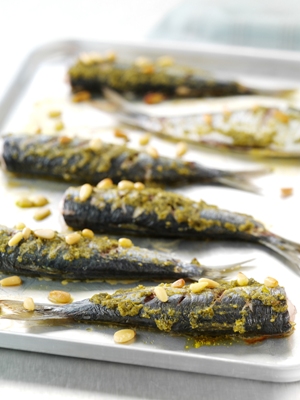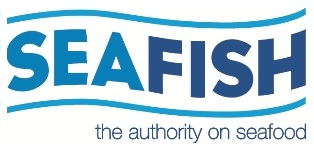Consumers Challenged to try UK Hake
Catches of Northern hake, landed around the UK, are looking plentiful this season – so Seafish, the authority on seafood, is urging consumers to try this excellent whitefish.
Hake used to be a familiar fish to Britons but seems to have fallen from favour at a time when availability is very good. 
Dr Paul Williams, Seafish Chief Executive, said: "With properties similar to cod and haddock, hake is an excellent species to try and it’s very good value for money. We are lucky in the UK that the quality and supply of hake is great – so I’d encourage consumers to widen their range of seafood to include hake this summer."
Hake, known as ‘merluza’ in Spain, is a Spanish favourite and since the Spanish have the highest per capita consumption of seafood in Europe, they should know what they’re talking about.
Dr Williams continued: "In addition to tasting great, the Omega-3 content for hake is surprisingly high for a whitefish. It is the 12th highest source of Omega-3 in a table published by Seafish, from a total of 41 species tested."
The latest ICES (scientific) advice for Northern European hake, the stock landed in the UK, is favourable for its sustainability. The Seafish Responsible Sourcing Guide to hake is available at https://www.seafish.org/media/sustainability/responsible-sourcing-guides.
Mitch Tonks, fishmonger, food writer and restaurateur, is a big fan of hake: "Hake is a great favourite in Spain and a lot of ours is exported; we should definitely eat more of it here, it is a lovely whitefish, a real treat to get hold of a chunk as its flesh is soft and delicious. Snap it up when you can."
Hake can grow quite large, like cod, and can be processed into fillets and steaks and is available filleted or frozen. In Cornwall, the traditional dish of ‘hake and onions’ is still popular.
Best availability for UK-landed hake is May until September. Certified sustainable supply is also available from Southern Africa.
Eating seafood sustainably
More and more people are becoming concerned about sustainability when buying seafood in the UK - but luckily there are many responsibly-sourced options available at your supermarket or fishmongers.
Some people are worried about eating cod, or wild-caught fish of any species, when in fact it’s perfectly possible to eat these fish with a clear conscience, provided that they come from a sustainably managed source.
Almost all cod eaten in the UK – including that from fish and chip shops - is imported from sustainable stocks from Icelandic, Russian and Norwegian waters.
However, there is no harm in widening your choice of seafood, to take pressure off popular species. Surprisingly, for a country with more than 100 different species available just from local waters, we are very unadventurous in our seafood eating habits.
Shellfish, in particular, is neglected as a great source of Omega-3 to help with heart health, and old myths about prawns being contributors towards cholesterol have now been debunked.
Other ‘alternative’ species to try include mackerel, sea bass – now successfully farmed in South-Eastern Europe – coley, hake, squid, pouting and dab. Hake is now plentiful around our shores and is also sustainably sourced from the Southern Atlantic. It has a firm, meaty flesh, not unlike cod and haddock, whilst squid stocks in the North Sea have increased markedly in recent years.
So try and be a bit more adventurous in your seafood choices. 
For more information go to www.seafish.org
Seafish back on board after positive Supreme Court ruling
Seafish, the authority on seafood, will be back serving the seafood industry at full capacity after the Supreme Court today (15/06/2011) handed down its judgment in favour of the Department for Environment, Food and Rural Affairs (Defra). The Court ruled that Seafish levy collection from imported sea fish and sea fish products is legal and always has been legal.
We are delighted with the Supreme Court’s ruling. The fact that the highest court in the UK has confirmed our powers to raise a levy on imported sea fish and sea fish products means we can now move forward and carry out our planned activities. The ruling will have a positive impact on Seafish and the entire seafood industry.
The earlier Court of Appeal decision, in March 2010, resulted in a significant loss of income to Seafish, which impacted on projects and services in all areas of our organisation – distracting us from our important work.
We are now very pleased to be able to return with force to our job - adding value to the seafood industry throughout the supply chain.
We have remained in touch with the businesses that have been affected by the court rulings, so we expect to be able to progress swiftly back to working at full capacity with our funding reinstated.
Dr Paul Williams, Chief Executive of Seafish
Seafish looks forward to working with the industry to move forward with activities covering priority issues, such as: safety; environment; regulation; standards; consumers; and health.
To enable Seafish to carry out future activities, back-dated levy will be collected from businesses that did not pay levy on imported sea fish and sea fish products from March 2010 to the present. Seafish will be in touch with the relevant businesses to discuss payment of this levy.
John Whitehead, the Seafish Chairman, said: "I would like to thank Paul Williams and all the staff at Seafish for their commitment during the past 16 months of uncertainty. This has been a very difficult time for all of them and the Seafish Board is appreciative of their dedication."